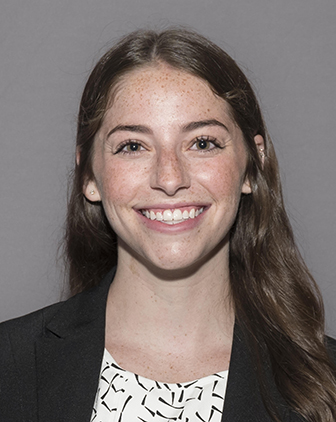
Subscribe to Pittwire Today
Get the most interesting and important stories from the University of Pittsburgh.Student Voices Integral to Restart Plans
The University of Pittsburgh is following the guidance of public health officials; local, state and federal government recommendations and the wealth of knowledge among its academics to craft the safest and most practical strategies possible to return to campus amid the COVID-19 pandemic.
But some of the most important collaborations have been with undergraduates and graduate students determined to ensure the student body is represented in the process. One of those partnerships sparked the creation of the Pitt Community Compact, a pledge created by a dozen undergraduate, graduate and professional students to, “uphold the health and safety of our community,” amid the pandemic by promoting responsible behaviors.
“The COVID-19 pandemic has altered the lives of us all,” it reads. “College campuses are typically denser and more diverse than other communities, and because of that, we must take additional precautions. While the circumstances that result from the pandemic may change over time, we must remain vigilant in our efforts to keep our community safe and healthy.”The compact outlines why a campus environment requires extra care during this time and underlines the importance of self and community accountability.
The compact encourages students to follow standard health and safety guidelines such as wearing masks and face coverings in public spaces, hand washing, physical distancing, following guidelines for in-person gatherings, avoiding unnecessary travel and staying home if there are signs of illness. It also asks students to hold themselves accountable for their personal safety and the safety of others within the campus community.“We got the idea for this compact out of the Pitt Promise, which is a guiding document with principles about what it means to be a member of the Pitt community. Basically, it’s that, but the pandemic edition,” said Eric Macadangdang, president of the Student Government Board and a member of the working group responsible for the compact.
A culture of compliance
While students were the driving force in creating the Pitt Community Compact, all members of the University community are encouraged to read and commit to its ideals. Pitt has also revised the Student Code of Conduct, effective Aug. 1, 2020.Additionally, Pitt’s coronavirus website provides general guidelines for creating a culture of compliance and safety.
Macadangdang, a senior who is pursuing a dual major in urban studies and history and philosophy of science in the Kenneth P. Dietrich School of Arts and Sciences, said the compact spun out of a task force created by Provost and Senior Vice Chancellor Ann E. Cudd on reimagining Pitt for the fall semester. That task force featured working groups on various topics and each group featured student participation.
In Macadangdang’s working group for outside the classroom experiences, which also included Graduate and Professional Student Government President Malena Hirsch, the idea of engaging the student community to follow health and safety guidelines was raised by Vice Provost and Dean of Students Kenyon Bonner, who chairs the group. So Macadangdang and Hirsch enlisted the help of students on the task forces and others from throughout the Pitt community to create the compact.
Bonner commended the students for “their compassionate and thoughtful leadership in a challenging time.”
“Pitt’s student leaders have stepped up in extraordinary ways to envision and lead the creation of our Pitt Community Compact. Drawing on the expertise of a diverse committee of their peers, our students crafted a pledge that articulates our shared commitment to care for each other and the holistic health of our community through our conscientious adherence to Pitt’s health guidelines,” Bonner said.
Hirsch, who is pursuing a joint master of business administration and master of health care administration in the Graduate School of Public Health and Joseph M. Katz Graduate School of Business, said the group made a point to reach out to a diverse group of students to form the group that ultimately wrote the compact.
“The students we appointed came from a variety of different backgrounds, so it was really nice to get an engaged group, some student leaders, some not, from so many different schools and programs to give a very well-rounded perspective,” she said.
Danielle Obisie-Orlu, president of the Resident Student Association and a member of the committee that created the compact, said it was critical for this group to be student led and the messages it delivered to be student driven.
“The compact says the campus community consists of various groups, from students and educators, to staff and families, and the wider Pittsburgh community. We really needed that student-led capacity of saying we need community-wide compliance and accountability measures from you,” said Obisie-Orlu, a sophomore pursuing a Bachelor of Philosophy with an international and area studies dual major, through the Honors College.
Student oversight
Student voices are also having an impact on the Implementation and Oversight Committee, a coalition of academics and administrators tasked with examining the medical and behavioral factors that must be considered for a safe return to campus.
Sai Bhatte, a senior majoring in neuroscience and economics in the Dietrich School who is also president of the Student Health Advisory Board, said since joining the group three weeks ago, she has provided insight on how the measures discussed might be received by students. She has started the process of recruiting additional student voices for a subcommittee. In addition, Bhatte suggested marketing strategies such as protecting popular elder members of the Pitt community or a campaign highlighting how compliance will help to ensure students can continue an on-campus experience this semester.
“We want to stay in Oakland,” she said. “As college students we love Cathy (a nickname for the Cathedral of Learning), we love being on campus. The big driver in this process for students—as well as keeping everyone safe—is wanting to stay on campus. So I proposed the idea that we talk about how Oakland’s glad to have us back, and we want to keep students here, so keep the mask on.”
Hirsch noted that coming together in groups will look a lot different this year, but coming together as an overall student community to do the right thing helps students to form an enhanced form of solidarity.
“Yes, it’s going to be different, it’s going to look different. More than thinking about just yourself, this is a time when we really need to band together as a community, as a nation, as humans all experiencing a pandemic. I hope this compact promotes that sense that we’re all in this together,” she said.





